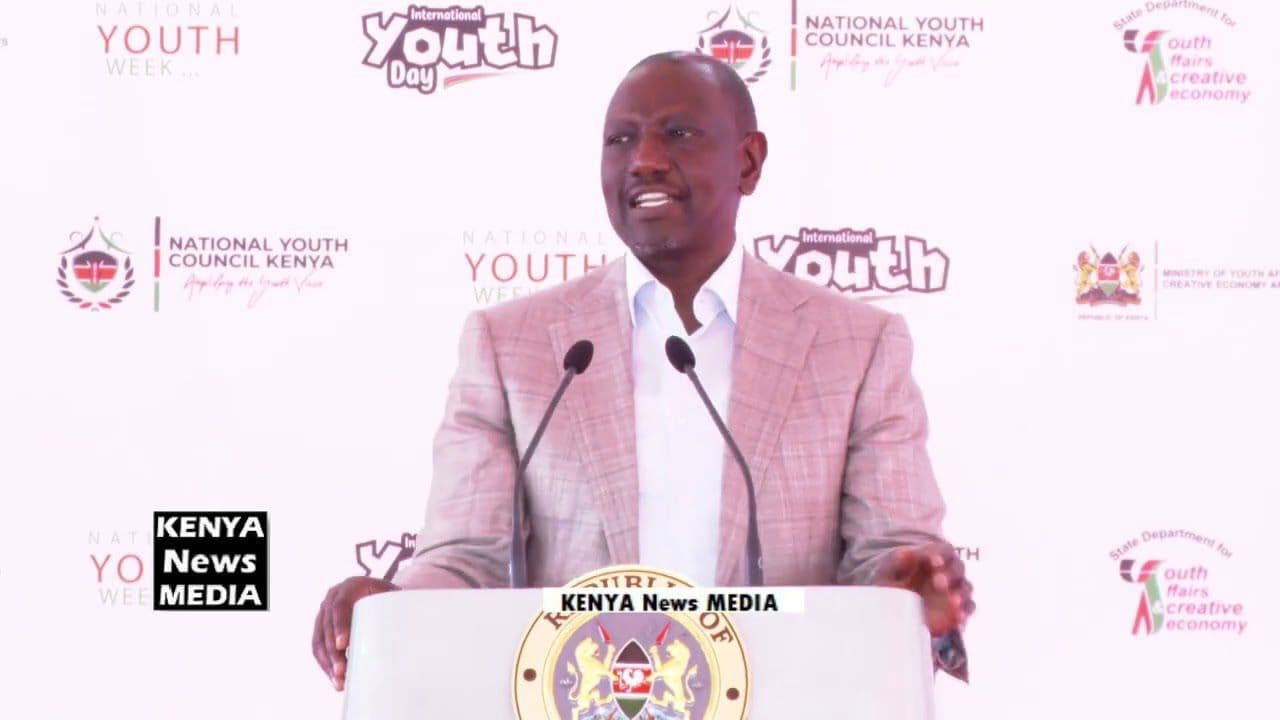We're loading the full news article for you. This includes the article content, images, author information, and related articles.
President William Ruto's administration has rolled out the National Youth Opportunities Towards Advancement (NYOTA) programme, a KSh 5 billion initiative offering KSh 50,000 grants and training to over 820,000 young Kenyans.

President William Ruto's government officially launched the National Youth Opportunities Towards Advancement (NYOTA) programme on Monday, October 6, 2025, a KSh 5 billion initiative designed to empower over 820,000 vulnerable young Kenyans. The programme, funded in partnership with the World Bank, seeks to provide KSh 50,000 grants for business startups, alongside training and mentorship opportunities.
The nationwide rollout saw Principal Secretaries dispatched to their home counties to preside over sensitisation forums, with elected leaders and national government officials also in attendance. This extensive launch comes two years before the next General Election, prompting some analysts to suggest a political motivation behind the timing, aiming to reconnect with a youth demographic that has previously expressed discontent through protests.
The NYOTA programme is introduced against a backdrop of significant economic challenges for Kenyan youth. The overall unemployment rate in Kenya stands at 12.7%, with youth aged 15-34 experiencing a much higher rate of 67%. Over one million young people enter the labour market annually, many lacking adequate skills.
Furthermore, Kenyans are grappling with a high cost of living, identified as the leading concern by 40% of respondents in an August 2025 Infotrak survey. The survey indicated that 79% of Kenyans believe the cost of living is higher than a year ago, with 70% rating it as “High” or “Very High.” Taxes were cited as the primary cause by 40% of Kenyans.
NYOTA, an upgrade of the Kenya Youth Employment Opportunities Project (KYEOP), is a five-year initiative targeting youth aged 18 to 29 years, and up to 35 years for persons with disabilities. Beneficiaries should have a Form Four level of education or below and be unemployed, underemployed, or in low-income jobs.
The programme aims to support 100,000 youth with KSh 50,000 grants to start businesses, with up to 70 beneficiaries from each of the 1,450 wards nationwide. Additionally, 90,000 youth will receive training for job experience and placement, while over 600,000 will be trained on Access to Government Procurement Opportunities (AGPO).
NYOTA also includes a savings component in partnership with the National Social Security Fund (NSSF) through its Haba Haba scheme, offering financial literacy training and incentives for consistent saving.
While the government presents NYOTA as a solution to youth joblessness, skepticism persists among some young Kenyans and analysts. Critics suggest the programme's timing aligns with a voter registration drive targeting young people, viewing it as a political strategy to regain youth trust ahead of the 2027 elections.
The programme's similarities to the Hustler Fund, another government initiative offering microloans, have also been noted. However, the government emphasizes that NYOTA offers grants rather than loans and benefits from World Bank oversight, aiming for enhanced credibility.
The success of the NYOTA programme hinges on transparent implementation and effective outreach to its target demographic. The perception of the programme as a political tool rather than a genuine economic intervention could undermine its impact and further alienate the youth. Ensuring that the KSh 50,000 grants translate into sustainable business ventures and job creation will be crucial for the programme's long-term success and for rebuilding trust with young Kenyans.
The long-term economic impact of the KSh 50,000 grants on youth entrepreneurship and job creation remains to be seen. The effectiveness of the training and mentorship components in equipping youth with relevant skills for the job market will also require close monitoring.
Observers will be keenly watching the uptake of the NYOTA programme, its impact on youth unemployment figures, and the transparency of the grant disbursement process. The political implications of the programme, particularly as the 2027 General Election approaches, will also be a key area of focus.
Keep the conversation in one place—threads here stay linked to the story and in the forums.
Sign in to start a discussion
Start a conversation about this story and keep it linked here.
Other hot threads
E-sports and Gaming Community in Kenya
Active 9 months ago
The Role of Technology in Modern Agriculture (AgriTech)
Active 9 months ago
Popular Recreational Activities Across Counties
Active 9 months ago
Investing in Youth Sports Development Programs
Active 9 months ago